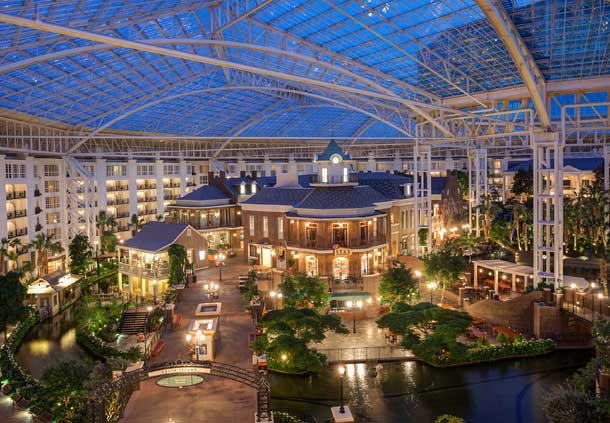Marriott has been caught blocking guests’ mobile hotspots as a way of getting them to pay for Wi-Fi. I’m borderline clueless when it comes to technology, and even I know you can’t do that.
Via Bloomberg:
Marriott employees blocked mobile “hotspots” at the Gaylord Opryland Resort & Convention Center in Nashville, Tennessee, while at the same time charging consumers, small businesses and exhibitors as much as $1,000 per device to access Marriott’s Wi-Fi network, the FCC said in a statement today.
“Consumers who purchase cellular data plans should be able to use them without fear that their personal Internet connection will be blocked by their hotel or conference center,” FCC Enforcement Bureau Chief Travis LeBlanc said in the statement.
Under a consent decree with the FCC, Marriott must stop using Wi-Fi blocking technology and file compliance and usage reports every three months for three years, the FCC said. Bethesda, Maryland-based Marriott, the world’s second-largest publicly traded hotel chain, also will pay a civil penalty of $600,000.
It’s rather unbelievable that Marriott would even try this. But what’s truly unfathomable is their response when caught:
Marriott says it did nothing wrong and it’s the FCC’s policies that need changing.
“Marriott has a strong interest in ensuring that when our guests use our Wi-Fi service, they will be protected from rogue wireless hotspots that can cause degraded service, insidious cyber-attacks and identity theft,” Jeff Flaherty, a company spokesman, said in an e-mailed statement.
Right, because the real reason Marriott is doing this is to protect their guests from cyber-attacks, identity theft, etc.
That’s like Spirit arguing that they charge for carry-ons as a way of encouraging you to pack more efficiently.
Bottom line
What Marriott did was bad enough. When caught, it’s one thing if they said “oops,” or even just explained that they interpreted the regulations differently. But to suggest that they’re doing this in the interest of protecting their guests? That’s laughable…







They weren't jamming the cell signal but the wifi signal using one of a number of methods collectively called "containment."
http://transition.fcc.gov/Daily_Releases/Daily_Business/2014/db1003/DA-14-1444A1.pdf
Network administrators wrestle with the issue of hotspots that may be set up by employes against company policy due to legitimate concerns about security but those concerns do not give them license to violate section 333 of the Communications Act but if they do so at least it is not to block access to...
They weren't jamming the cell signal but the wifi signal using one of a number of methods collectively called "containment."
http://transition.fcc.gov/Daily_Releases/Daily_Business/2014/db1003/DA-14-1444A1.pdf
Network administrators wrestle with the issue of hotspots that may be set up by employes against company policy due to legitimate concerns about security but those concerns do not give them license to violate section 333 of the Communications Act but if they do so at least it is not to block access to an authorized service for the purpose of selling a replacement and their own economic benefit.
More likely I'm assuming it's blocking cell phone signals so that people can't create Wi-Fi hotspots
Cell phone jammers are probably fall under fcc jurisdiction
And that is one of the many reasons why I avoid Marriott at all costs.
The press release i read said they were simply trying to stop sinners who were watching porn in their rooms
They thought they might read the bible instead and become whole and pure
Honesty with integrity just like the Marriott folks :)
So in another words, Marriott believes they have the right to control their 'airspace' which, if that were true, would set a dangerous precedent. Then they would theoretically be able to block anything that passes through their air space.